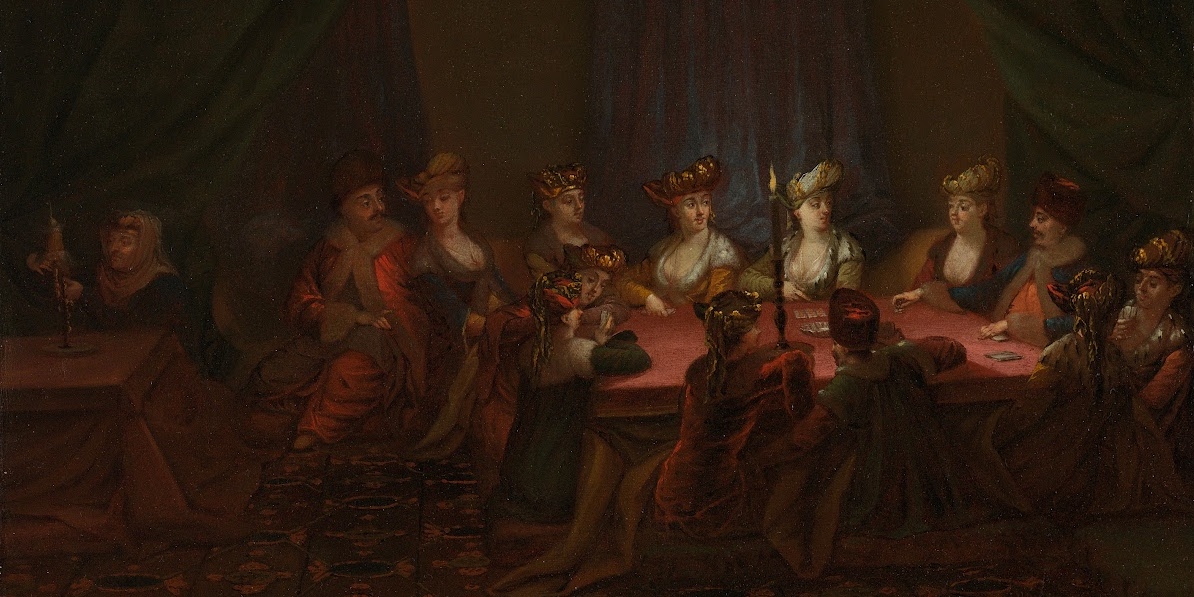Intellectual Currents in Early Modern Islam
Episode 328
hosted by Shireen Hamza and Abdul Latif
The seventeenth century, contrary to popular belief, was a time of great originality and change for scholars in the Ottoman Empire and the Maghreb. In this interview, Khaled El-Rouayheb debunks the many myths of intellectual decline by showing how the intellectual production changed in tandem with major migrations across the Islamic world. We start with the influx of Kurdish and Azeri logicians into the Ottoman Empire, and the new disciplines that they brought with them. We then discuss the movement of scholars from North Africa to Egypt and the Hejaz, and how they insisted on methods of taḥqīq, or verification, rather than taqlīd, or the acceptance of knowledge based on authority alone. Finally, we touch on how the spread of Sufi orders from India and Central Asia into Arabic-speaking regions impacted the development and disputation of the concept of waḥdat al-wujūd, or the unity of being. How does this detailed research on intellectual trends change our understanding of "modernity" and the period we call the "early modern"?
Stream via SoundCloud
Contributor Bios
 |
Khaled El-Rouayheb is James Richard Jewett Professor of Arabic and of Islamic Intellectual History at the Department of Near Eastern Languages & Civilizations at Harvard University. His research interests include: the intellectual and cultural history of the Arabic-Islamic world in the early-modern period (1500-1800); the history of Arabic logic; Islamic theology and philosophy. Among his publications is the book: Before Homosexuality in the Arabic-Islamic World, 1500-1800 (University of Chicago Press, 2005), translated into French (2010) and Slovenian (2012). |
 |
Shireen Hamza is a doctoral student in the History of Science department at Harvard University. Her research focuses broadly on the history of science and medicine in the Islamicate Middle Ages, and more specifically on the history of women's health. |
 |
Abdul Latif is an MTS student at Harvard Divinity School focusing on Islamic Studies. |
Suggested Episodes
 |
Eric van Lit | #251
7/27/16
|
Ottoman Commentaries on Islamic Philosophy | |
 |
Elias Muhanna | #282
11/16/16
|
Compiling Knowledge in the Medieval Islamic World | |
 |
Didem Havlioğlu | #071
9/24/12
|
Women Literati and Ottoman Intellectual Culture | |
 |
Sebouh Aslanian | #325
7/18/17
|
Ports and Printers Across the Armenian Diaspora | |
 |
Ayfer Karakaya-Stump | #148
3/8/14
|
Alevis in Ottoman Anatolia | |
 |
Cemil Aydın | #313
5/16/17
|
The Idea of the Muslim World |
Credits
Episode No. 328
Release Date:19 August 2017
Recording Location: Semitic Museum, Harvard University
Audio editing by Shireen Hamza
Music: Harmandali - Recep Efendi, Cemal Efendi
Bibliography courtesy of Khaled El-Rouayheb
Release Date:19 August 2017
Recording Location: Semitic Museum, Harvard University
Audio editing by Shireen Hamza
Music: Harmandali - Recep Efendi, Cemal Efendi
Bibliography courtesy of Khaled El-Rouayheb
Select Bibliography
 |
| Islamic Intellectual History in the Seventeenth Century by Khaled El-Rouayheb Cambridge University Press, 2015 |
Zilfi, M. The Politics of Piety: The Ottoman Ulema in the Postclassical Age, 1600–1800. Minneapolis: Bibliotheca Islamica, 1988.
Stearns, J. “All Beneficial Knowledge is Revealed: The Rational Sciences in the Maghrib in the Age of al-Yūsī (d.1102/1691).” Islamic Law and Society 21(2014): 49-80
Le Gall, Dina. A Culture of Sufism: Naqshbandīs in the Ottoman World, 1450–1700. Albany: SUNY Press, 2005.
Kafadar, C. “The Question of Ottoman Decline,” Harvard Middle Eastern and Islamic Review 4 (1997–1998): 30–75.
Ḥajjī, Muḥammad. Al-Zāwiya al-Dilāʾiyya wa Dawruhā al-Dīnī wa-l-ʿIlmī wa-l-Siyāsī. Casablanca: Maṭbaʿat al-Najāḥ al-Jadīda, 1988.
Hathaway, J. The Arab Lands under Ottoman Rule, 1516–1800. Harlow, UK: Pearson Education Limited, 2008.
O’Fahey, R. S., and B. Radtke. “Neo-Sufism Reconsidered.” Der Islam 70 (1993): 52–87.











Comments
Post a Comment
Due to an overwhelming amount of spam, we no longer read comments submitted to the blog.